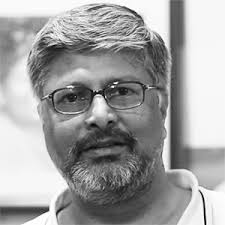It is commonly argued that a citizen has four key roles in a democracy-
1. Support and defend the Constitution
2. Be informed and aware of issues that matter
3. Participate in the democratic process, and
4. Respect and follow the laws of the land
I believe these are the roles of passive citizens. None of the major reforms in the world (women’s suffrage and gender equity, inclusion and rights for disadvantaged communities, etc.) would have ever been possible if citizens were passive. Each of them required active movements by citizens to challenge the powers-that-be and force them into enacting laws that provide for greater economic and social justice.
An active citizen needs to go beyond these to-
a) Question the laws of the land and debate the need for constitutional reform, advocate and press for changes, including participating in active movements
b) Demand greater accountability and delivery of citizen services and rights from the government, beyond once-in-five-year voting
c) Participate actively in the lawmaking process as well as in ensuring effective functioning of government institutions
Let’s take, for example, the MCGM (Municipal Corporation of Greater Mumbai). Covering a population of 1.3 crore, it has a budget of 52,000 crores, or approximately Rs. 40,000 per citizen. If even 1/4th of this sum were made available to citizen committees (ALMs or Advanced Locality Management as they are called in Mumbai, RWAs or Resident Welfare Association in many other parts of India), imagine the impact this could create.
Take for instance, the 7 lac people who live in the slums of M East ward comprising Bainganwadi, Shivajinagar, Cheetah camp and pockets of Deonar and Govandi. Giving them a budget of Rs. 700 crores per year can see enormous improvement in provision of basic public infrastructure (toilets, water and electricity, affordable housing, roads, solid waste management and drainage systems) and will likely drive the effectiveness of use of public funds many fold. The same is true for gram panchayats in villages.
How do we get to a place where citizens have an active say in what the government does for them? We have to build more institutions that create accountable governance.
We need more organisations like
i) Haiyya.in and Civis that encourage active citizen involvement in formulation of laws
ii) Reap Benefit, Janaagraha and Project Mumbai to encourage citizens to step up and take responsibility
iii) Those that fight for rights of disadvantaged communities (people with disability, LGBTQI, gender), animals and against climate change
iv) Indian School of Democracy and PRS Legislative Research that work hard on improving the quality of elected politicians and their actions
We need a movement to encourage citizens (children, youth, homemakers, retired citizens and those in active careers) to volunteer their time on causes that matter to them, so that their understanding of issues goes beyond the rubbish that is doled out on news channels every night.
This requires concerted work by a lot of us coming together to raise awareness, create platforms that provide opportunities for citizens to get involved, and build mechanisms that incentivise active citizenship. Together, we can build a much better nation, instead of relying on power-hungry politicians and an inept administrative system. For each of us, though, it is important to recognise that our role goes beyond watching TV news and voting once in five years.
We have to get started in our locality to solve our problems- be it a pothole, a domestic abuse case, education in the nearby government school, improving the quality of our parks and beaches, or any other cause that we connect with. Only when citizens become active can we have a thriving, vibrant democracy that is truly OF, BY and FOR the people.

Mr. Venkat Krishnan started his career with the media, working at the Times of India Group and the founding team at Sony Entertainment Television between 1993 and 1996. He co-founded Eklavya School in Ahmedabad till 1999. In 2000, he set up GiveIndia, which he ran till 2008. He also co-founded Educational Initiatives Pvt Ltd, which he exited in 2018. He is the principal trustee of India Welfare Trust. Mr. Krishnan is a signatory to LivingMyPromise and an active DaanUtsav volunteer. He now spends 90+% of his time and money to promote volunteering and giving in India. He graduated from IIMA in 1993.
